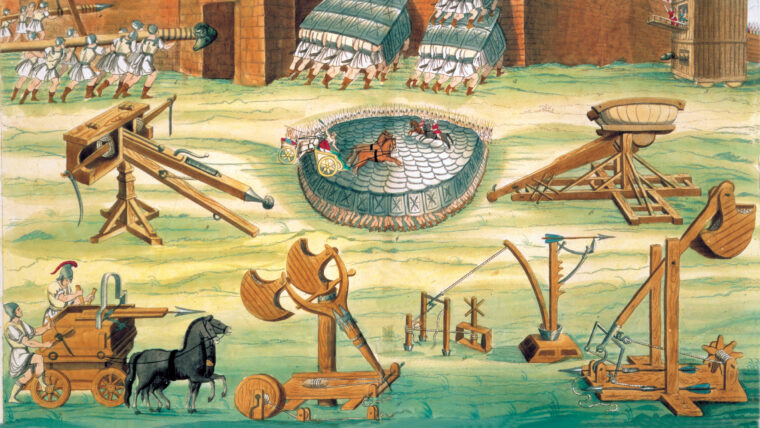
Alexander the Great
Types of Weapons Used by Ancient Greece
By Mike MarkowitzWhen we think “catapult,” we imagine the types of weapons used for hurling rocks, dead plague victims, or unlucky cows against a castle. Read more

Alexander the Great
When we think “catapult,” we imagine the types of weapons used for hurling rocks, dead plague victims, or unlucky cows against a castle. Read more
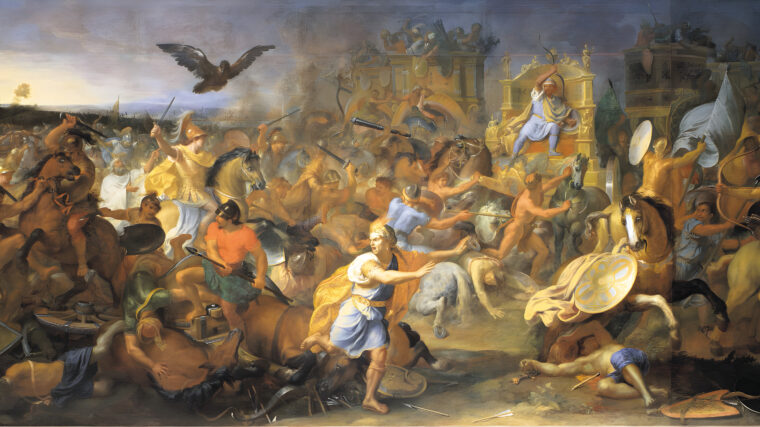
Alexander the Great
The Battle of Gaugamela began on the morning of October 1, 331 bc, when two great armies drew up for battle to determine the destiny of empires. Read more
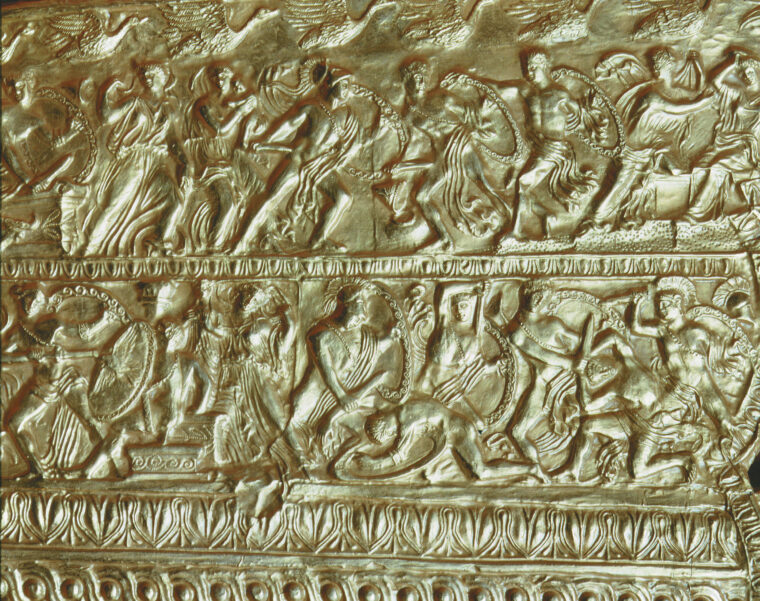
Alexander the Great
The city-states of ancient Greece were rich in culture and history. But following the Peloponnesian War, which lasted 27 years, they were exhausted, their best young men dead, Attica’s farms ruined. Read more
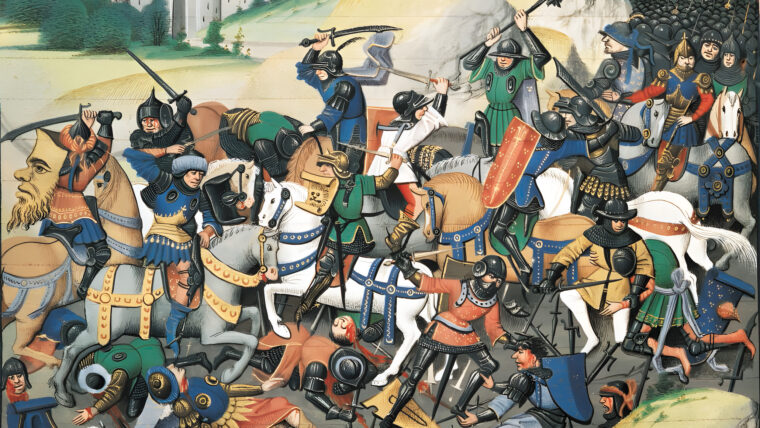
Alexander the Great
Shortly before dawn on June 3, 1098, Bohemund of Taranto, one of the leaders of the First Crusade and the survivor of many campaigns, stood in the shadow of the Tower of the Two Sisters, one of the strongest points in the defenses of the ancient city of Antioch. Read more
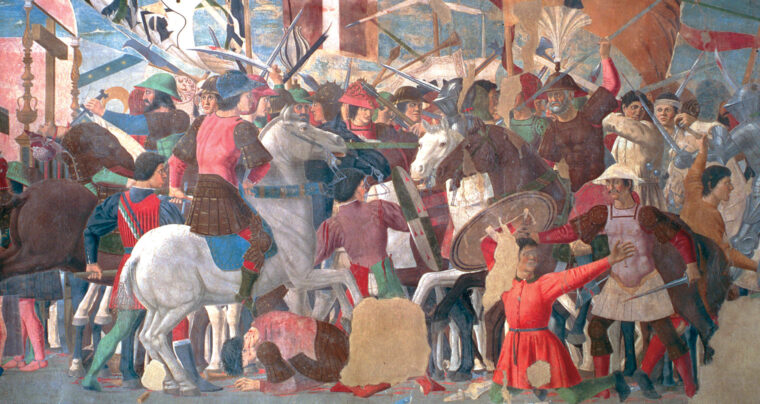
Alexander the Great
Byzantium, the successor state to ancient Rome, lasted over a thousand years. But it all could have been different because its first major enemy—Persia—was a fierce and determined competitor bent on the Empire’s demise. Read more
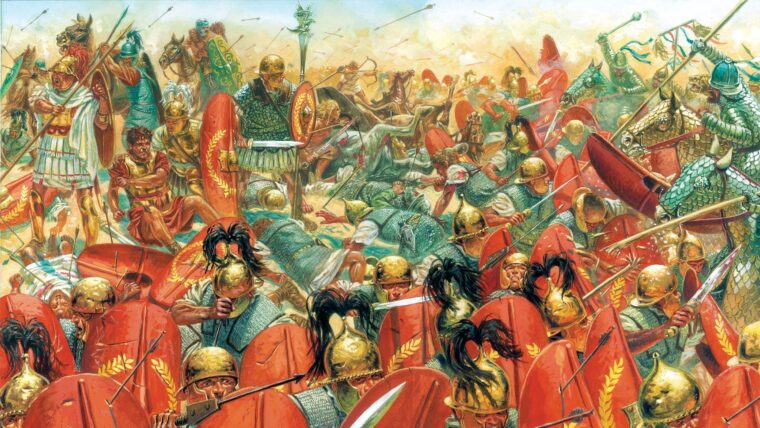
Alexander the Great
Alexander of Macedon, called “the Great,” died in June of 323 BCE having conquered the mightiest empire yet seen on earth. Read more
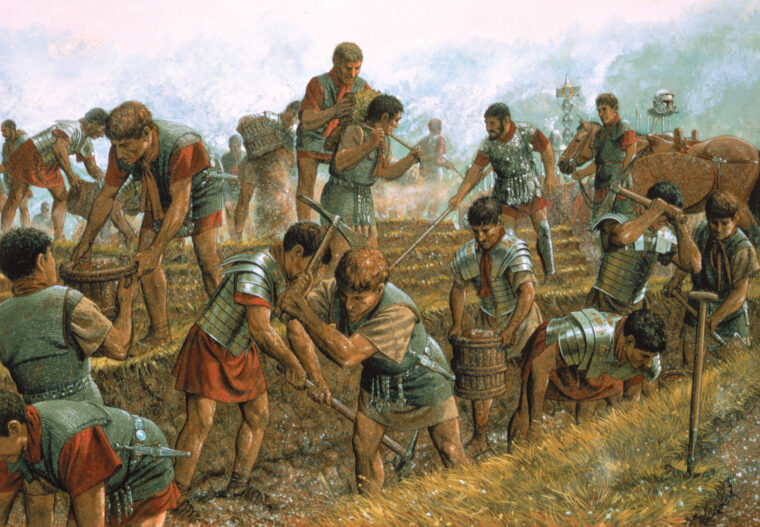
Alexander the Great
From the late 3rd century bc to the 3rd century ad, Roman troops on campaign built a defended camp at their resting place each night. Read more
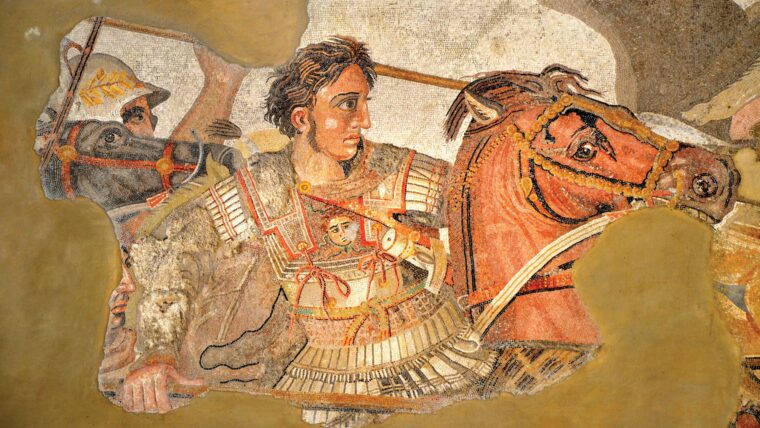
Alexander the Great
He was the first Caucasian many of his conquered subjects had ever seen. The empire he established during his short life stretched from Greece to the Indus River in modern Pakistan, an area of about 2 million square miles—more than twice the size of the Louisiana Purchase. Read more
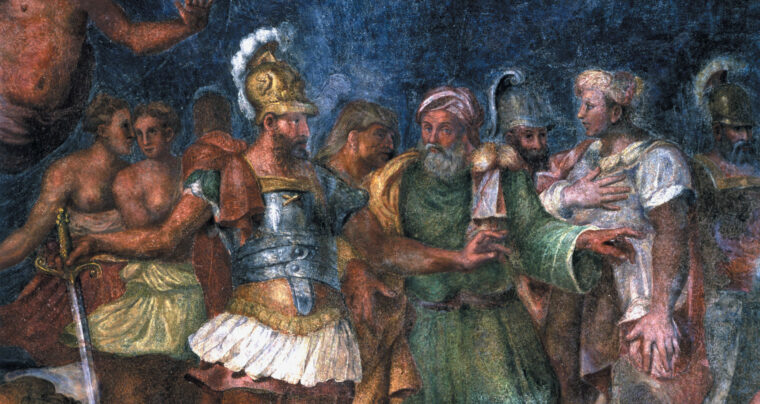
Alexander the Great
It was the autumn of 333 bc and Alexander the Great stood triumphant on the battlefield of Issus. Read more
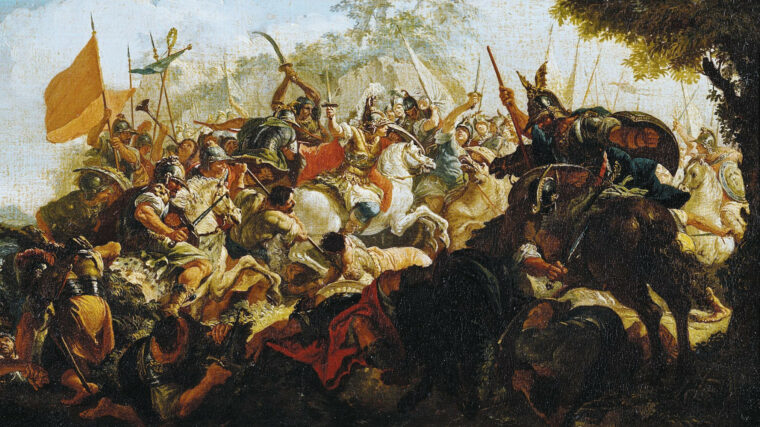
Alexander the Great
A major dilemma confronted Alexander the Great and his 35,000-man Macedonian army in the summer of 334 bc, as they moved to secure the northwestern corner of Asia Minor. Read more
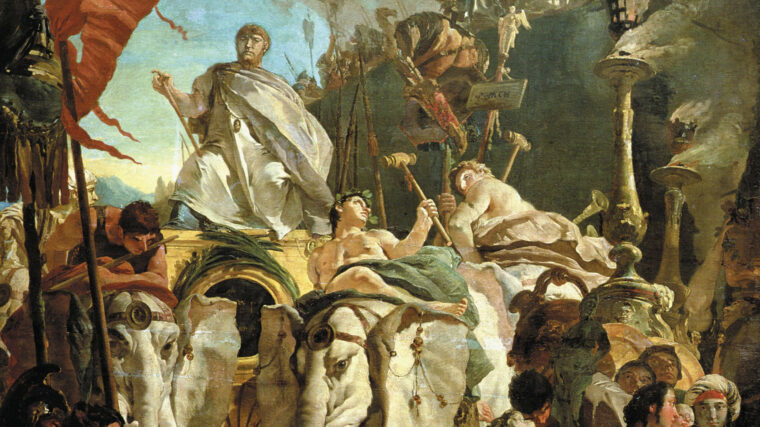
Alexander the Great
By the middle of the 4th century bc, the Roman Empire had steadily expanded its reach into the southern half of Italy. Read more
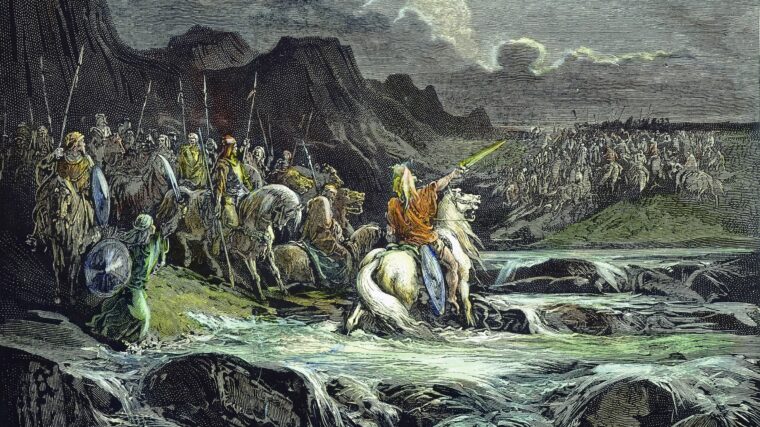
Alexander the Great
By 167 bc, when a full-scale revolt erupted in Judea, it had been more than 400 years since an organized Jewish army had taken up arms against an enemy. Read more
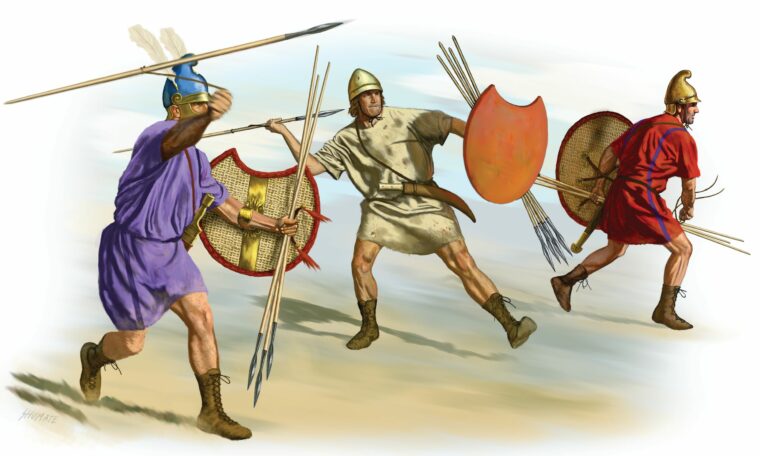
Alexander the Great
The 3rd century BC in Greece was an age of military innovation. The lessons learned in the Peloponnesian War (431-404) led to the increased use of lightly armed troops and cavalry. Read more
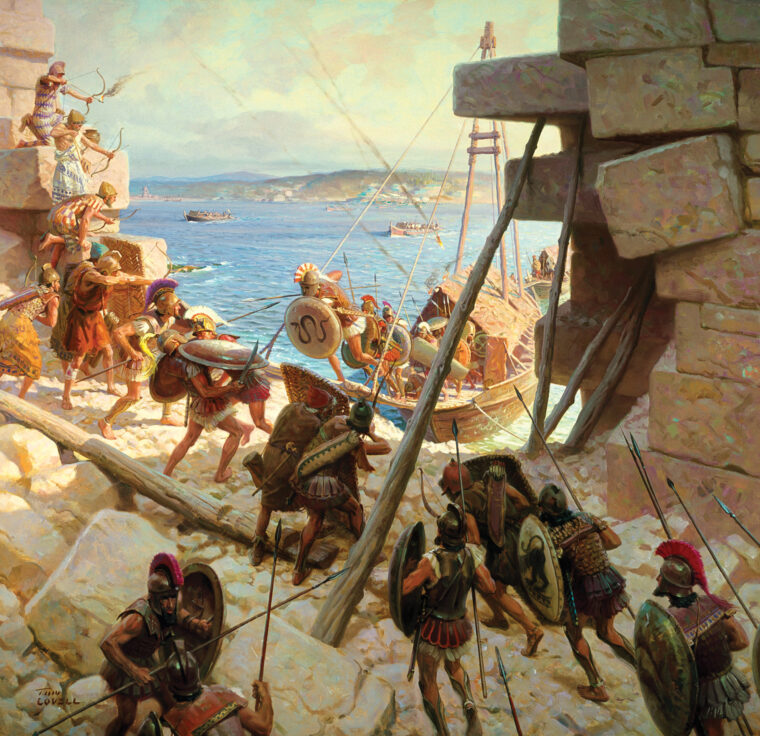
Alexander the Great
As Alexander the Great marched his army south along the Levantine coast in January 332 bc, he must have felt as if the fates were unquestionably on his side. Read more
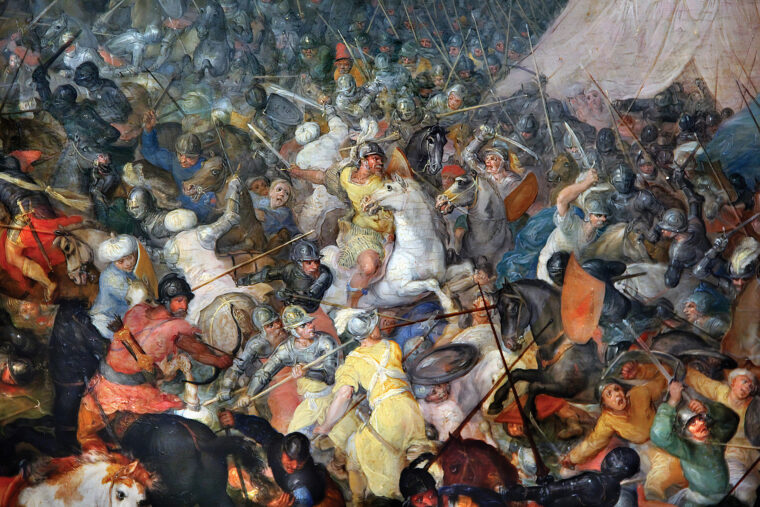
Alexander the Great
Those rare qualities that set the extraordinary military commanders apart from the average ones were present in Alexander the Great, wrote the Greek historian Arrian, who drew on the account of Alexander’s general, Ptolemy. Read more
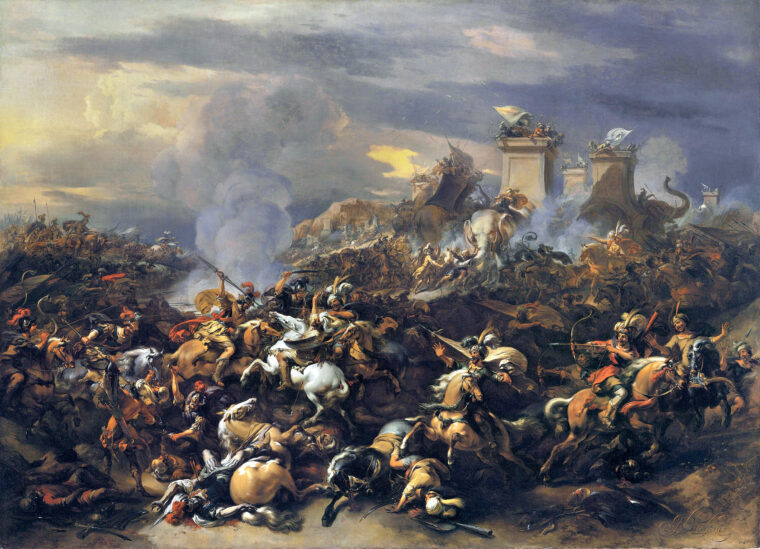
Alexander the Great
The Macedonian soldiers stood transfixed on the flood plain as the Pauravan army advanced toward them. The ground shook with each step the great lumbering war elephants took as they advanced toward the wide-eyed Greeks. Read more
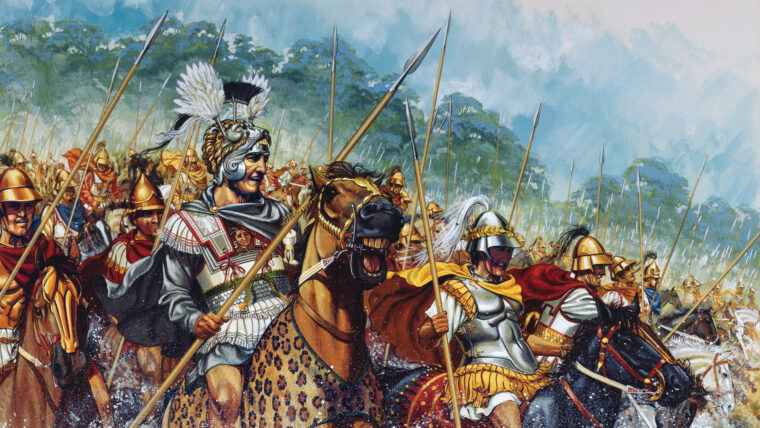
Alexander the Great
In the spring of 334 bc, Alexander of Macedon paused with his army on the western side of the Granicus River. Read more
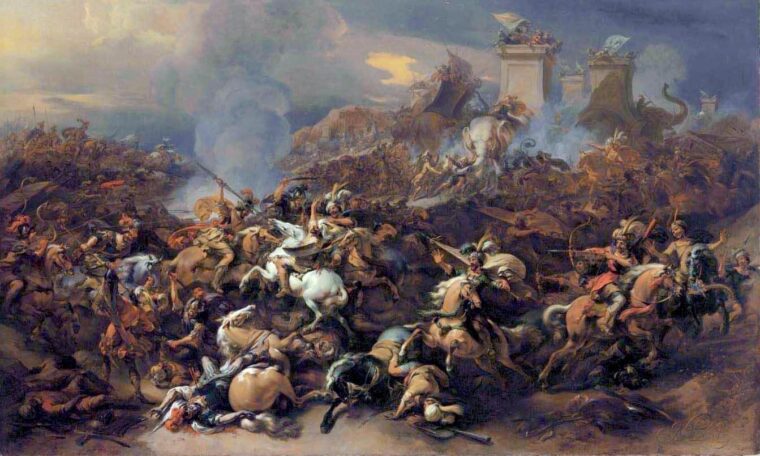
Alexander the Great
It was raining, raining with a force and intensity few had ever experienced. The Macedonian army was marching upstream near the northern banks of the Hydaspes River in India (now Pakistan), trying to reach a ford under the cloak of darkness. Read more
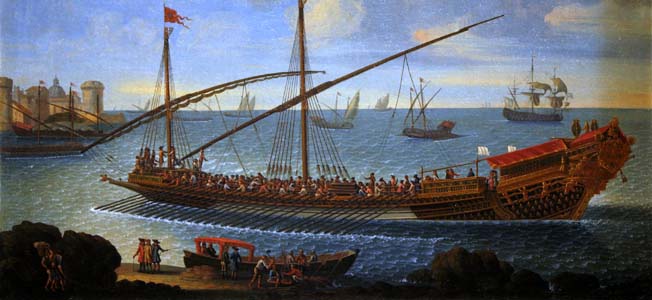
Alexander the Great
The third century BC saw fierce naval competition arise all across the Mediterranean. In the west, the Romans and Carthaginians struggled for control of the sea. Read more
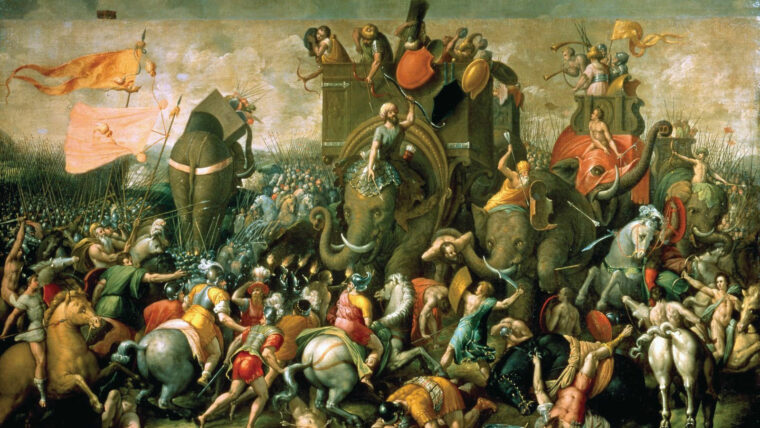
Alexander the Great
Imagine a time when human knowledge of elephants was not widespread. Just think how threatening these large animals would be coming over a hillside or out of a mist during battle. Read more